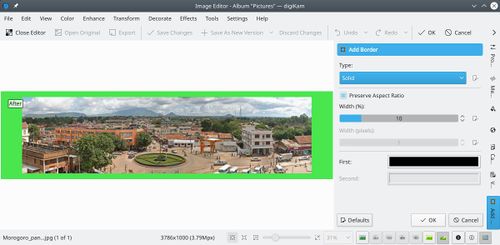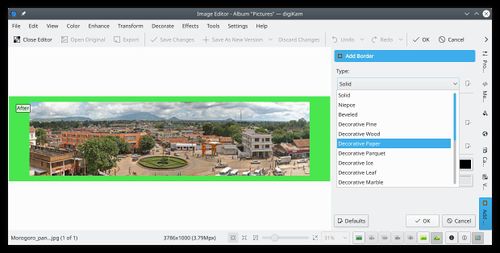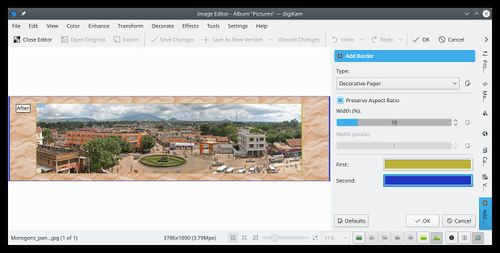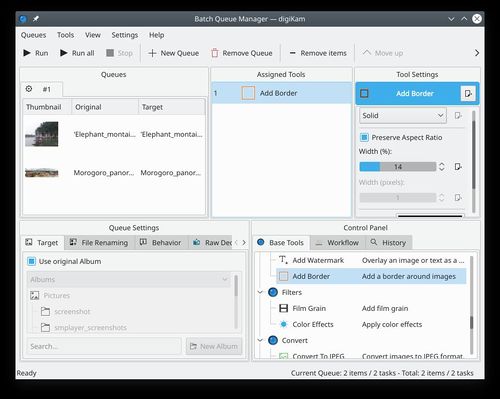Digikam/Adding Borders To Your Photos/da: Difference between revisions
Importing a new version from external source |
Importing a new version from external source |
||
| Line 15: | Line 15: | ||
En af mulighederne er er <menuchoice>Fast</menuchoice>. Denne type giver dig mulighed for at vælge imellem mange farver. | En af mulighederne er er <menuchoice>Fast</menuchoice>. Denne type giver dig mulighed for at vælge imellem mange farver. | ||
Farvevalgene er | |||
:* Forty Colors | :* Forty Colors | ||
Revision as of 15:34, 12 March 2011
Føj rammer til dine fotos
Fra Mohamed Maliks blog, 7. marts 2011
Mange føjer rammer til deres billeder, da det får billedet til at se bedre ud. digiKam gør dette nemt og enkelt!
Der er to måder at tilføje billedrammer i digiKam.
- Metode 1
Vælg det foto, som du ønsker at sætte rammer på og tast F4. Dette vil tage dit til editorvisningen. Herfra vælger du .
Du får nu en masse muligheder.
En af mulighederne er er . Denne type giver dig mulighed for at vælge imellem mange farver.
Farvevalgene er
- Forty Colors
- Oxygen Colors
- Rainbow Colors
- Royal Colors
- Web Colors
- Named Colors
You can change the hue, saturation and value of any color and add it to your list of custom colors. See screen capture below. (These images can be clicked for larger views)

When you are done press .
If you prefer predefined textures to apply as borders you can select from the available options menu, which gives many choices.

If you choose this option then you can choose the first color and second color. First color is the color that you will see in the inner area, where as second color is the color you will see on the outer area. See screen capture:

When you are done press .
- Method 2
Method 1 is very useful when to test the feature and try to get a border that really suits your needs. However if you have many images that you want to apply borders to, then the batch queue manager would be the best option. Select all the images that you want to apply borders and click Ctrl + B on the keyboard and the Batch Queue Manager appears.
Drag and Drop the tool to the list of assigned tools and set your preferences select a target folder then click (Ctrl + P).
See screen capture below:

